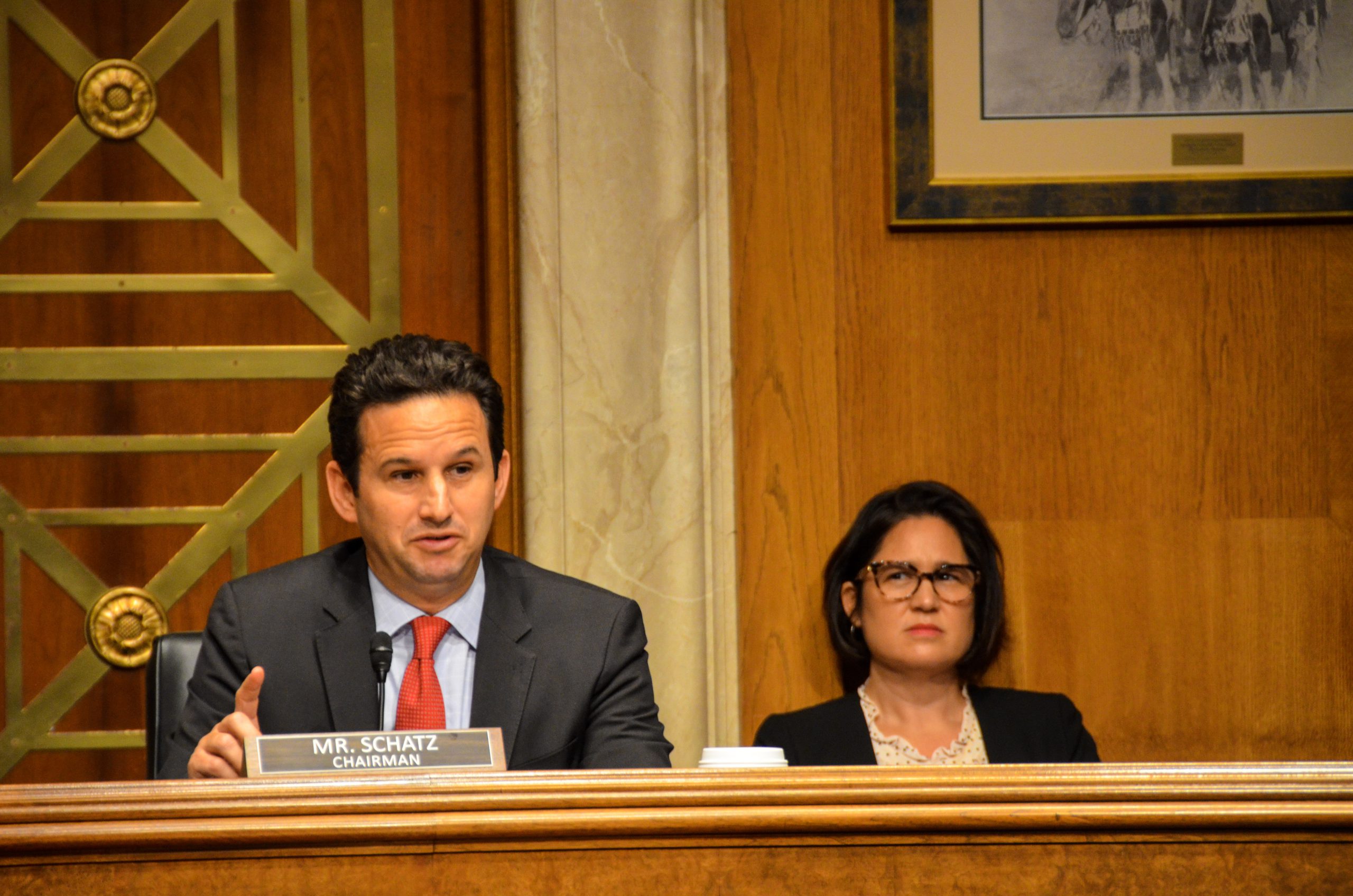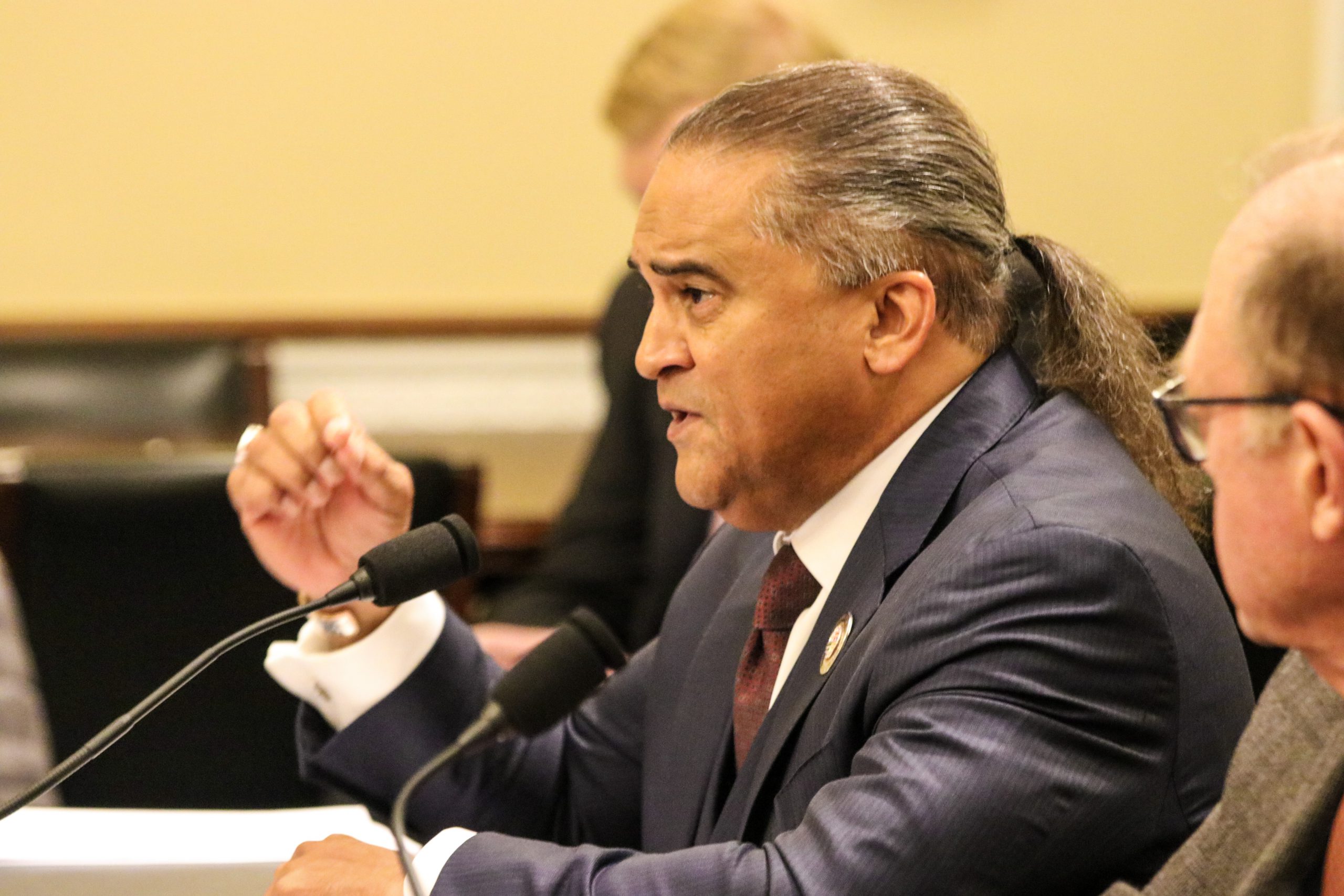Indianz.Com > News > Key Senate leader seeks hearing on Lumbee Tribe federal recognition

Key Senate leader seeks hearing on Lumbee Tribe federal recognition
Wednesday, May 12, 2021
Indianz.Com
WASHINGTON, D.C. —
A key leader in the U.S. Senate intends to move forward with a bill to extend federal recognition to the Lumbee Tribe.
Sen. Brian Schatz (D-Hawaii) announced his support for a hearing on S.1364, the Lumbee Tribe of North Carolina Recognition Act, on Wednesday. His position is crucial as he serves as chair of the Senate Committee on Indian Affairs, the legislative panel with jurisdiction over tribal matters.
“The Lumbee Tribe of North Carolina Recognition Act deserves a full and fair hearing before the Senate Committee on Indian Affairs,” Schatz said in a statement. “Congress’ constitutional authority to recognize Indian tribes must be exercised with due diligence, and the first step is a legislative hearing.”


Related Stories
Tribes await action on priorities as Congress returns to work (November 18, 2020)H.R.1964, Lumbee Recognition Act (November 17, 2020)
Lumbee Tribe sees progress on federal recognition bill (November 16, 2020)
Indian Country Today: Native voters play role in key Senate races (November 3, 2020)
Citizens of Lumbee Tribe endorse Joe Biden for president (October 26, 2020)
‘Trump is hitting us really hard’: Biden campaign confronts last minute push for Native vote (October 23, 2020)
‘Incredible Lumbee, Catawba tribes’ #NativeVote20 (October 22, 2020)
House Committee on Natural Resources schedules markup on Indian Country bills (September 28, 2020)
Search
Filed Under
Tags
More Headlines
Native America Calling: Is Native history patriotic enough for history class?
Native America Calling: Paying the price for 80 years of nuclear development
Native America Calling: The fight for Shinnecock Nation fishing rights
Source New Mexico: Funding for Navajo Nation water project in doubt
Colorado Newsline: Corporation for Public Broadcasting shutting down
Arizona Mirror: Former Navajo Nation president mounts another run for Congress
Cronkite News: Democrats look to take House from Republicans
DVIDS: Mescalero Apache Tribe welcomes military aid after flooding
NAFOA: 5 Things You Need to Know this Week (August 4, 2025)
Chuck Hoskin: Cherokee Nation writes new chapter in education
Native America Calling: Native educators grapple with burnout
Cronkite News: Farm offers horse therapy for adults and youth
Native America Calling: Indigenous economic opportunities and threats in the Arctic
Native America Calling: Bridging Indigenous cultures across the Arctic
Cronkite News: Speculation surrounds visit by Sen. Ruben Gallego (D-Arizona)
More Headlines
Native America Calling: Paying the price for 80 years of nuclear development
Native America Calling: The fight for Shinnecock Nation fishing rights
Source New Mexico: Funding for Navajo Nation water project in doubt
Colorado Newsline: Corporation for Public Broadcasting shutting down
Arizona Mirror: Former Navajo Nation president mounts another run for Congress
Cronkite News: Democrats look to take House from Republicans
DVIDS: Mescalero Apache Tribe welcomes military aid after flooding
NAFOA: 5 Things You Need to Know this Week (August 4, 2025)
Chuck Hoskin: Cherokee Nation writes new chapter in education
Native America Calling: Native educators grapple with burnout
Cronkite News: Farm offers horse therapy for adults and youth
Native America Calling: Indigenous economic opportunities and threats in the Arctic
Native America Calling: Bridging Indigenous cultures across the Arctic
Cronkite News: Speculation surrounds visit by Sen. Ruben Gallego (D-Arizona)
More Headlines